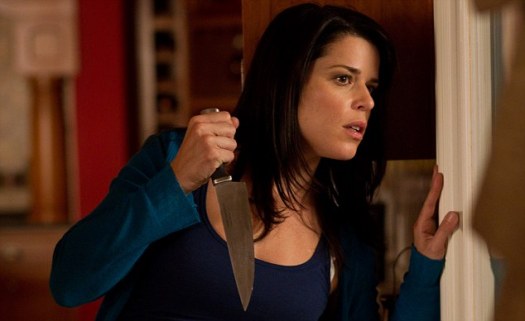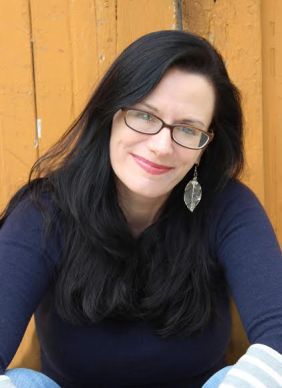by Kate Maruyama
I’ve been a fan of Submit 1 since its first year when I hosted hour one and talked about strategies for submitting and dealing with rejections. As I spoke on Instagram Live, people chimed in with questions and announced when they had made a submission and we cheered as a group! It was early and I was just getting my coffee. I was thrilled by how I had just woken up and I was already in a virtual room full of supportive writers. The Women Who Submit Community were at work that morning and throughout the day and I dipped in as other hosts shared their experiences, tips, and claps and cheers. The feeling that we were all working together toward a common goal made it a singular space.
Women Who Submit has been a huge part of my life. In the ten years since I joined, it has been a resource support, a place to keep me on task in submitting my work, and a place to ask any questions about writing, publishing, and even job opportunities. A lot of things that I’ve had published are because of attending submission parties and being cheered on as I pressed SEND.
Last year Toni Ann Ann Johnson asked me to join the hour of Submit 1 she was hosting, along with our friend and colleague Nicole D. Sconiers. I’m always happy to learn more from Toni Ann, who leads really good discussions and is always a fabulous host.

Flyer from the Submit 1, hour with Toni Ann Johnson, Kate Maruyama, and Nicole D. Sconiers.
What followed was a conversation about all the ways in which Toni Ann, Nicole, and I are intertwined with our work, mutual support, friendship, and careers. All three of us told stories about times we were so frustrated, we gave up. We were there for each other, coaxing each other back to work, to the submitting, to the myriad jobs that go into being a writer. It felt like it was the most “Women Who Submit moment ever” as we talked, comments rolled in from members who were submitting all over the country and we cheered them on.
Toni Ann and Nicole are both my first readers. We have been exchanging work for years. We met each other in different ways. Toni Ann and Nicole shared Alma Luz Villanueva as a mentor. Nicole and I met as students in our MFA workshop where I was so excited by her speculative fiction story “Here Come the Janes” that I basically started hounding her for more stories. Later, she hired me to edit her first collection: Escape from Beckyville, Tales of Race Hair and Rage. I kept on her to write and submit after that because at that time, her speculative fiction, which she described as “A Black Woman’s Twilight Zone” was rare and needed. This was 2009 and predated Black Mirror as well as Get Out.
Toni Ann’s fingerprints are all over my three novels that came after Harrowgate. She is not only my first reader, she’s the reason my upcoming book Alterations happened at all. She inspired the idea by asking why I didn’t write about old movies since I loved them so much, and she provided thorough notes on two drafts of the book. When my agent had given up on that book, Toni Ann didn’t and prodded me to believe in my characters and my story and to submit the book independently to small presses. There’s a “you can definitely do this” stalwart belief Toni Ann has in all of her suggestions. Even at my weakest, darkest moments, she encourages me to find that belief again. When the book, after ten years of support from Toni Ann, finally sold, she was the person I called first.
You can read more about our mutual support in a conversation we had for The Coachella Review “You Can’t Do This Shit Alone.” Toni Ann and I have both found similar support in WWS where there is this idea that a rising tide raises all boats and we share resources, encourage each other, and think of ways that each writer in the group can improve, submit, and promote their own work.
In an email exchange, Nicole said, “Toni Ann is not only supportive of my fiction writing but my screenwriting as well. She encouraged me to submit to the ScreenCraft script competition. I submitted my sci-fi thriller Spectacle to the 2022 ScreenCraft Sci-Fi & Fantasy competition and was named a finalist out of more than 3,000 submissions! She also provided coverage for my script Bless the Mic and shared the screenplay with a director who hired me for a writing project.”
Nicole has been a go-to for my genre short stories and for my literary novels. I know she won’t hold any punches and will be open and honest about anything I’m writing. She gave me notes on my new novella Safer (paired with Family Solstice in my new book Bleak Houses out now from Raw Dog Screaming Press) and is the queen of details.
During our Submit 1 conversation Toni Ann had this to say, “Nicole helped me refine details and elements of (fact-checked) some of my fiction, which led me to clarify or emphasize the veracity of my details. She also made helpful (and humbling!) corrections to spelling/grammar/punctuation. We have also exchanged some of our screenwriting. I’ve read at least two of Nicole’s screenplays (which I loved!) and she’s read at least one of mine. Over the years, I’ve recommended Nicole as a writer and as a manuscript consultant to multiple friends and colleagues.”
This was such a beautiful thing to recount for WWS members in our hour of Submit 1 with Toni Ann and, as we told these stories, more writers helped by this circle of friends tuned in, in the comments. We realized these stories tell the far reach of the WWS community. Some folks submitted their work while we were talking: it was peak Submit 1.
During this magical hour on IG Live, I realized that without Toni Ann and Nicole, half of the wonderful things that have come my way wouldn’t have happened at all.
All writers are out there alone, getting up our nerve to submit, but it is this kind of community, helping each other out with drafts, encouraging each other when we lose hope, and bolstering each other through tough times that makes WWS a profound group to belong to.
Toni Ann put it best when she wrote, “As you both know, this writing journey is not easy, there are good times, but when the hard times hit hard, they can be unspeakably dismal–at least for me–and I’ve been lifted in low times by each of you.”
Together we can do so much. Our upcoming Submit 1 slogan is “One community, one day, one submission at a time.” You can join our community virtually by tuning into Instagram Live on September 9 (@womenwhosubmit) or check in with this website to learn how to participate in person!










